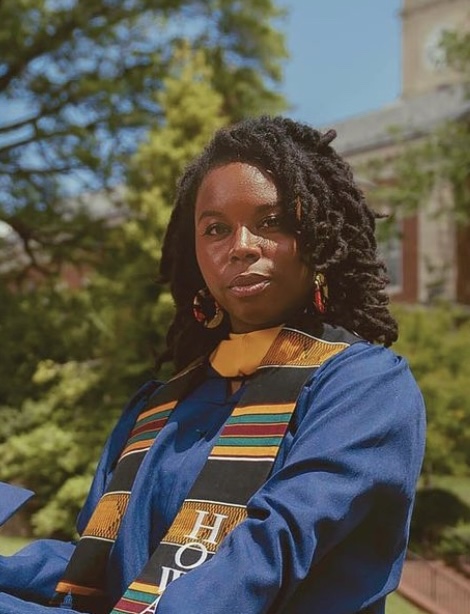Meet the Class of 2023: Kailande Cassamajor Brings Creativity to Data Science Research
September 20, 2021

Kailande Cassamajor is a researcher, poet, world traveler, and a new student in the M.S. in Data Science program at Columbia University.
“Creativity is a key part of who I am,” she explains. “When I’m writing a piece, it starts with my observations, with what I’m experiencing in my environment, and what narrative I can extract that is honest and true to what I’m experiencing. I feel like there’s a strong connection to where my path is headed, this intersection between data science and creativity.”
Cassamajor double majored in biology and psychology at Howard University based on an interest in the “interplay between what happens psychologically and how it manifests in our physical bodies.”
As an undergraduate, Cassamajor completed three key research experiences—honors research in psychology at Howard, the Summer of Translational Aging Research for Undergraduates program at Columbia, and a summer research program in brain and cognitive sciences at the Massachusetts Institute of Technology (MIT).
Her honors thesis at Howard focused on the impact of social support on psychological distress amongst African American breast cancer survivors and the mediating influence of fear of cancer recurrence. Her internship at Columbia allowed her to look at how early adverse experiences impact cognition in a diverse group of advanced aged adults. And at MIT, she participated in research into early childhood cognition with a focus on how infants “make assumptions about the physical world.”
Cassamajor credits her Columbia internship with her start in data science; she had to learn R for data analysis. “I became curious about what R is used for, started asking questions in the lab, and the term ‘data science’ kept coming up,” she said. “I fell down a rabbit hole of exploring the multitude of fields where data science is being applied, how it’s the intersection of math and statistics and all these diverse fields, and I was really drawn to it.”
The next step for Cassamajor was Data Science for All’s Empowerment Program, which she participated in during her senior year at Howard. The selective program offers a 13-week data science course taught by faculty from Harvard, MIT, Columbia, and Stanford. Students work in teams to solve real-world data and AI challenges and are immersed in a community of people in data-related fields.
After graduating from Howard in May 2021, Cassamajor was awarded a Graduate Education for Minorities (GEM) full fellowship, which provides funding for students from underrepresented groups to pursue advanced degrees in applied science and engineering. GEM fellows are offered practical engineering summer work experiences and tuition support at member universities, including Columbia. Through the fellowship, Cassamajor spent the summer of 2021 with the Applied Physics Lab (APL) at Johns Hopkins University and led a study in education technology analysis. She also worked as a teaching assistant in APL’s CIRCUIT program, which provides yearlong internships for undergraduates.
Cassamajor is excited to be in the tech hub that is New York City and to be part of Columbia’s extensive data science network. “I love how students are encouraged to branch out across departments and engage in projects with faculty and other students across the university.”
— Karina Alexanyan, Ph.D.